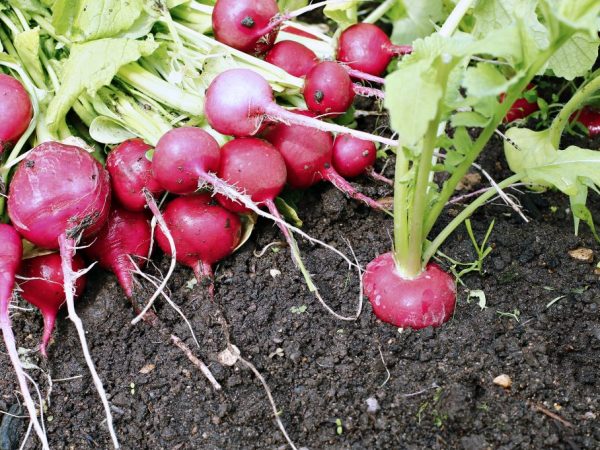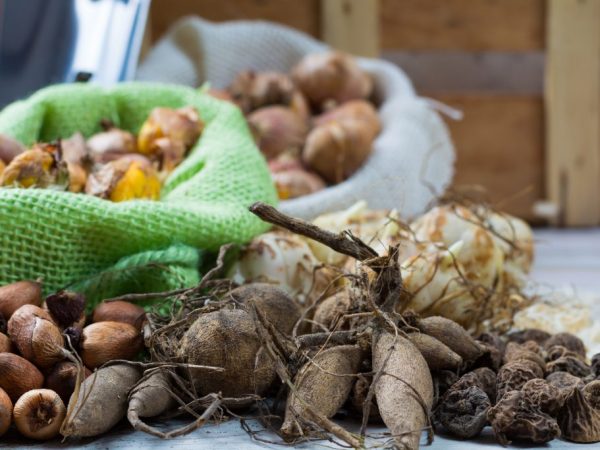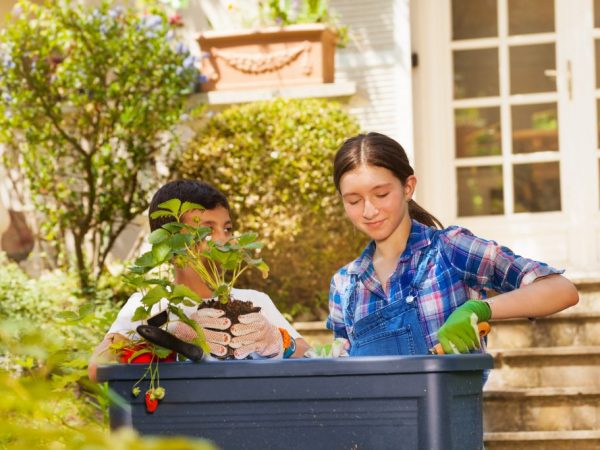Lunar calendar of the gardener and gardener for October 24, 2021
Sunday
- Cleaning: Carrots, beets for bunch products; Mid-season and late potatoes; Garlic
- Rooting the mustache: Garden strawberries
- Cropping: Berry bushes; Raspberry, hedgehog; Fruit trees
- Pruning vines: Grapes
- Stepping into: Tomato
- Removing the whiskers to enhance fruiting and improve rooting: Garden strawberries
- Weeding; Grubbing tree stumps
- Sowing seedlings b / p: Tomato
- Picking: Tomato; Cauliflower
- Sowing: Carrots for winter storage
- Cleaning: Carrots for winter storage; Radish, radish
- Landing: Garlic
- Sowing on green fertilizers: Cereals
- Harvesting cuttings: Grapes; Fruit trees
The influence of a lunar day
During this period, the Moon is in the waning phase. The vital activity of plants is declining: nutrients for the most part accumulate in the roots. Therefore, gardening work should be minimized.

It is best to devote this day to caring for the plants that form root crops. For example, potatoes, onions, Jerusalem artichoke, radishes, carrots are planted or harvested. During this period, many nutrients accumulate in the tubers.
Ripe seeds of crops producing root crops (radish, onion) now have a high germination rate.
It is possible to carry out surface loosening, careful removal of weeds, thinning. It is not advisable to feed the plants. It is also better to postpone irrigation work until later (with the exception of drought).
Vegetable beds, a flower garden and indoor plants should be left alone - now it is undesirable to disturb them.
But you can cut off excess branches and shoots of trees, plant seedlings. Manipulations with grafting fruit crops, as well as pinching grape shoots will go well.
The day is suitable for:
- planting root crops;
- collection of root crops and seeds of these crops;
- planting tree seedlings, forming a crown, grafting and pinching.
The day is not suitable for:
- active loosening and digging of beds;
- fertilization;
- irrigation works;
- care of any herbaceous plants not related to root crops.
Influence of the day of the week
Since ancient times, the last day of the week has been associated with positivity and joy. After all, the sun is the patron saint of Sunday, which means that the day is charged with positive energy, which is best used for rest and entertainment. That is why it is better to postpone hard, dirty work to the next week.
Experienced gardeners recommend limiting yourself to watering plants and applying fertilizers. It is this stage of work that will fill the plants with strength and charge them with solar energy for further growth and development.
Also on this day you can do aesthetic activities. The creation of flower beds and living fences can be quite successful. Such work will be enjoyable and positive, and the result will exceed expectations.
Digging or plowing work should definitely be postponed. This dirty job is not for Sunday. It is better to plan all stages of work on weekdays. It is not yet recommended to engage in thinning beds, removing weeds, cutting or uprooting shrubs.
If there are seasonal fruits and vegetables that need to be harvested, you should limit yourself to what the family can consume that day. It is better to transfer harvesting for the winter and collecting seeds to Monday.
Sunday does not imply parasitism. This day of the week is special and offers the following possibilities:
- Preparation and scheduling of work on weekdays;
- Carrying out aesthetic and decorative work in the garden, flower bed or vegetable garden. These are those that bring positive;
- Basic plant care work that requires minimal labor costs;
- Collection of fruits and vegetables for food.
And in order not to disrupt the positive energy of the day, it is worth warning the execution of the following work:
- Do not take on hard and dirty work;
- Planting, thinning, tearing weeds, breaking branches, uprooting shrubs is prohibited;
- It is better to postpone the collection of gifts for blanks to other days.
No wonder it is said that Sunday is a day of rest and joy. The very energy of this day adjusts to calmness. And if you follow the above rules, you can gain strength and positive energy for a whole week.
Moon phase influence
This period has one very important difference, namely, a change in the circulation of nutrient juices in plants. At this time, the juices are directed towards the roots from the top. It is worth noting that on the waning moon, plants just slow down growth and activity. That is why, from March 3 to March 8, it is recommended to manipulate the aerial part of the plants, while not touching the roots.

The period is favorable for planting root and bulbous plants, since all their juices are collected in the root part. By planting root crops on the waning moon, you help them gain more strength and become much tastier and juicier.
What not to do
As a rule, on a waning moon, the roots become too vulnerable and prone to various diseases. Therefore, at this time it is recommended to postpone all work that is related to the ground. These include digging a site, loosening or watering plants.
When watering plants on a waning moon, you need to be very careful, as you run the risk of damaging the roots. Instead, focus on pruning trees or removing shoots. You can also do pest control and weed management for great results.
Work in the garden
If you are gardening, you can devote time to harvesting foliage and uprooting stumps or old trees. Harvesting is recommended only for aboveground plants.
The collected fruits will be well stored, therefore, for the waning moon, you can make various preparations, as well as drying herbs or fruits.
The influence of the zodiac sign
Gemini is a sign of Air. Its main qualities are dryness and low yield. Therefore, this period is not suitable for sowing seeds or planting seedlings. Growing up, such plants develop the root system as much as possible, but to the detriment of all other parts. As a result, they have a very weak stem that needs support. In the future, the taste of the crop also suffers, and the aroma, if there is, is very weak.

Because of all of the above, it is highly undesirable to plant or transplant plants in this lunar phase. Careful care of weakened specimens will take a lot of effort, but will not live up to expectations. When the Moon is in Gemini, watering should be avoided.Despite this, a number of gardening works during this period can and should be performed.
What to do during the growing phase
Planting or transplanting ornamental shrubs, flower seedlings, as well as sowing flower seeds will go well. Climbing plants can also be planted. It is recommended to transplant strawberries, strawberries (propagated by a mustache). This is the right time for collecting medicinal herbs, mowing.
What to do in the waning phase
This is a very good time for loosening the soil, applying mulch, hilling potatoes, weeding, removing weeds and weak ovaries. You can do the formation of the crown of trees and shrubs, pruning shoots. Digging of carrots, beets and other root crops is carried out. The roots of medicinal plants are extracted, ripe fruits are harvested.
What is allowed to do on the moon in Gemini
- To plant plants with creeping (rooted whiskers) or creeping (not rooting) stems, as well as curly and ampelous (hanging) stems.
- To plant melons and legumes, garden and forest strawberries.
- Remove whiskers from strawberries, thin out the beds.
- Loosen the soil directly at the root, huddle, pull out weeds (do not water!).
- Tear off stepchildren, vaccinate, pinch the kidneys.
- Mow lawn and meadow grass, harvest brushwood and firewood.
- Cut flowers for sale (keep fresh for a long time).
- Dig root vegetables and onions for winter storage.
- Collect medicinal herbs and crops, as well as seeds, bulbs, tubers of vegetable and ornamental plants, intended for planting.
